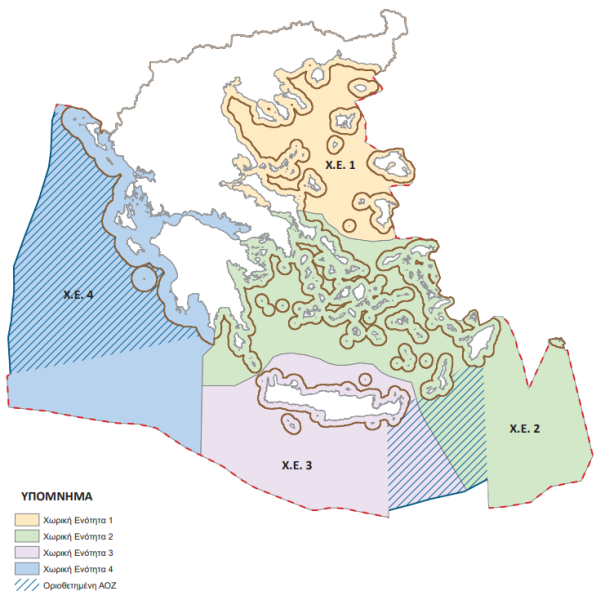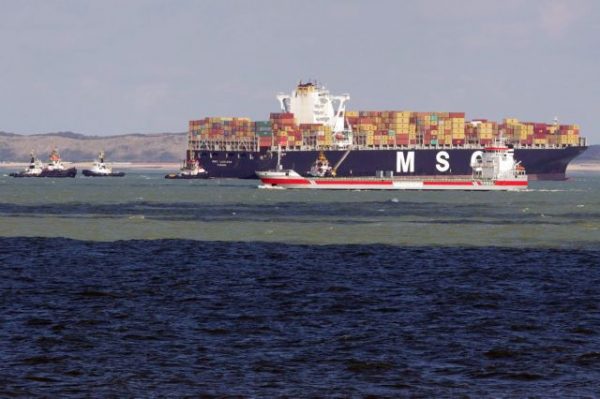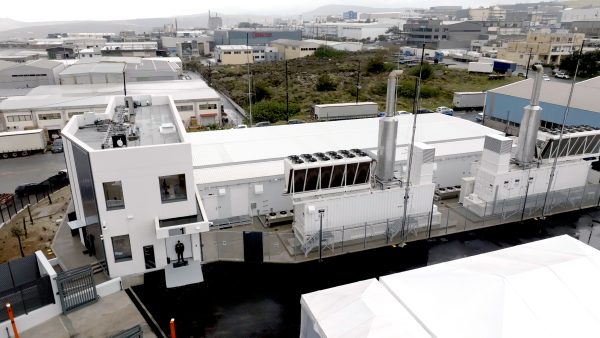
Tourism investments in Greece are ongoing, albeit without a special framework. In fact, for five and a half years, i.e. since March 2017, tourist infrastructures have been zoned based on the Regional Spatial Plans, which, however, have not all been revised, so they do not include various modern tourism development standards. This is because the Council of State, in 2017, had canceled the first Special Spatial Framework (SPF) for Tourism of 2009, which had come back into force in 2015, when the second SPF of 2014 had been canceled by the supreme court.
How did this snap come about? In 2009, six environmental organizations (Hellenic Society for the Protection of Nature, Hellenic Society for the Environment and Culture, Ornithological Society, “Arktouros”, “Archelon” and “Kallisto”) had appealed against the first Spatial Framework for tourism. However, the issuance of a decision by the Council of State had been postponed since in 2013 the then political leadership of the Ministry of Environment had established the second Spatial Framework for tourism, for which they also appealed before the Supreme Court of Cassation.
When the second framework was canceled two years later, in 2015, by the Plenary of the Council of State, the first framework of 2009 was reinstated, which was finally canceled in 2017 on the grounds that it was outdated and could not be reinstated.
Thus, in May 2018, the then Minister of Environment and Energy, Mr. Giorgos Stathakis, signed the contract for the assignment of the study for a new Spatial Framework for Tourism, and in September of the same year, the contract for the assignment of the Strategic Environmental Impact Study was also promulgated by the then General Secretary of Spatial Planning of the Ministry of Interior Ms. Irini Klabatsea, with the prospect of being completed immediately.
Today, four years later, the study has passed the judgment of the Executive Committee of the Ministry of the Environment and Energy, the proposal of the new Spatial Framework was finalized and an order was given to start the preparation stage of the Strategic Environmental Impact Study, which, barring unforeseen circumstances, is expected to be delivered to the relevant staff of the ministry by the end of the year.
According to the current schedule, the country should obtain a zoning plan for tourism in March 2023. However, there are several …unstable factors that may again delay its completion. First of all, there should be a consultation on both the draft Spatial Framework for Tourism as well as the currently being developed Spatial Framework and any observations and comments, after they have been evaluated and deemed important, should be incorporated. Then the plan will have to go through the judgement of the Central Council for Urban Planning Issues and Disputes.
The purpose of the Special Framework for Spatial Planning and Sustainable Development for Tourism is to provide guidelines, rules and criteria for the spatial structure, organization and development of tourism in Greece as well as for the necessary infrastructure. Also, the Framework lays the foundations for improving the competitiveness of the tourism product, ensuring the protection and sustainability of the resources of interest to tourism, the strengthening of regional development policies as well as the formation of a clearer framework of directions for the underlying planning, the licensing authorities, but also the companies concerned.
After all, spatial planning and urban planning are a prerequisite for the protection of the urban and natural environment, as well as the business environment. Only with clear rules – in terms of legal certainty – will investment be promoted, and the risks of encroachment or disturbance of protected or ecologically sensitive areas will be limited.
Latest News

Greek €200M 10Y Bond to be Issued on April 16
The 3.875% fixed-interest-rate bond matures on March 12, 2029, and will be issued in dematerialized form. According to PDMA, the goal of the re-issuance is to meet investor demand and to enhance liquidity in the secondary bond market.

German Ambassador to Greece Talks Ukraine, Rise of Far Right & Tariffs at Delphi Economic Forum X
Commenting on the political developments in his country, the German Ambassador stressed that it was clear the rapid formation of a new government was imperative, as the expectations across Europe showed.

Athens to Return Confiscated License Plates Ahead of Easter Holiday
Cases involving court orders will also be excluded from this measure.

Servicers: How More Properties Could Enter the Greek Market
Buying or renting a home is out of reach for many in Greece. Servicers propose faster processes and incentives to boost property supply and ease the housing crisis.

Greek Easter 2025: Price Hikes on Lamb, Eggs & Sweets
According to the Greek Consumers’ Institute, hosting an Easter dinner for eight now costs approximately €361.95 — an increase of €11 compared to 2024.

FM Gerapetritis Calls for Unified EU Response to Global Crises at EU Council
"Europe is navigating through unprecedented crises — wars, humanitarian disasters, climate emergencies," he stated.

Holy Week Store Hours in Greece
Retail stores across Greece are now operating on extended holiday hours for Holy Week, following their Sunday opening on April 13. The move aims to accommodate consumers ahead of Easter, but merchants remain cautious amid sluggish market activity.

Green Getaway Ideas for Easter 2025 in Greece
Celebrate Easter 2025 in Greece the sustainable way with eco-farms, car-free islands, and family-friendly getaways rooted in nature and tradition.

Civil Protection Minister Details Summer Firefighting Plans at Delphi Forum
At the 10th Delphi Economic Forum, Minister of Climate Crisis and Civil Protection Yiannis Kefalogiannis discussed Greece's plans for the upcoming fire season.

How Shops and Markets Will Operate During Easter Holy Week
The Easter holiday schedule has been in effect since April 10, with retail stores open Palm Sunday, and most supermarkets also operating to meet consumer demand for Easter shopping









































 Αριθμός Πιστοποίησης
Αριθμός Πιστοποίησης